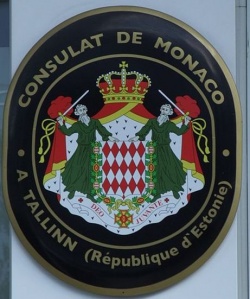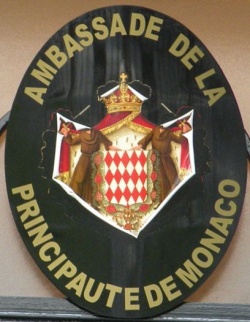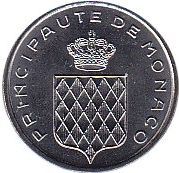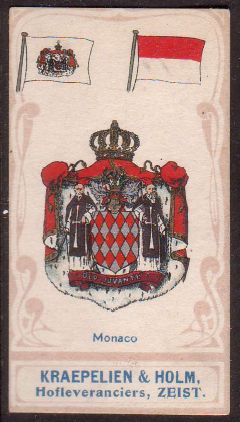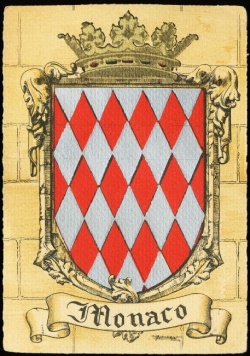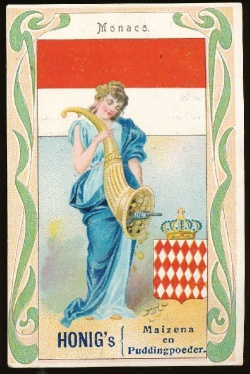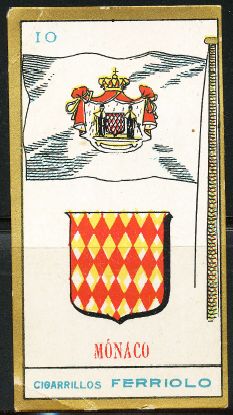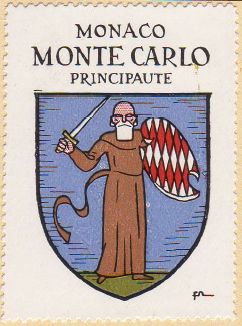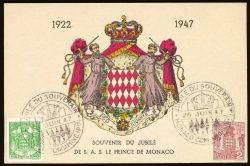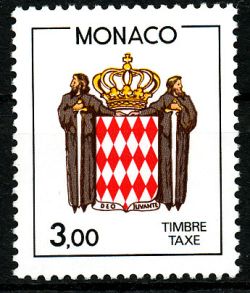National Arms of Monaco: Difference between revisions
Jump to navigation
Jump to search
Knorrepoes (talk | contribs) |
Knorrepoes (talk | contribs) |
||
| Line 15: | Line 15: | ||
The arms are also used by the Prince as well as the city | The arms are also used by the Prince as well as the city of Monaco. | ||
Offical use of the arms : | Offical use of the arms : | ||
{|align="center" | {|align="center" | ||
|align="center"|[[File:monaco2.jpg|center|250 px]] <br/>The arms at the consulate in Estonia (source:Wikipedia) | |align="center"|[[File:monaco2.jpg|center|250 px]] <br/>The arms at the consulate in Estonia (source:Wikipedia) | ||
|align="center"|[[File:monaco3.jpg|center|250 px]] <br/>The arms at the embassy in Paris (source:Wikipedia,<br> monks look decapitated, but sticker with the arms has curled !) | |||
| | | | ||
|- | |- | ||
Revision as of 16:56, 2 May 2012
| Heraldry of the World Civic heraldry of Monaco |
THE NATIONAL ARMS OF MONACO
Origin/meaning
These are the arms of the Grimaldi family. The supporters, two monks holding swords, recall how the disguise under which the first Grimaldi to rule over Monaco penetrated the fort in 1297. The chain is the Order of Charles the Holy and was added in the early 20th century.
The motto Deo Juvante, is Latin for With God's help and is the motto of the Grimaldi family.
The arms are also used by the Prince as well as the city of Monaco.
Offical use of the arms :
| The arms at the consulate in Estonia (source:Wikipedia) |
The arms at the embassy in Paris (source:Wikipedia, monks look decapitated, but sticker with the arms has curled !) |
|
| The arms on a 1982 coin |
The arms on a 2009 car license plate |
Other uses:
| The arms on a Dutch trade card from around 1910 |
The arms on a French postcard from the 1970s |
The arms on a Dutch trade card from around 1910 |
| The arms on a Uruguayan cigarette card from around 1920 |
The arms in the Café Sanka album +/- 1932 |
The arms on a postcard from 1949 |
| The arms on a modern stamp |
The arms on a French postcard from the 1970s |

